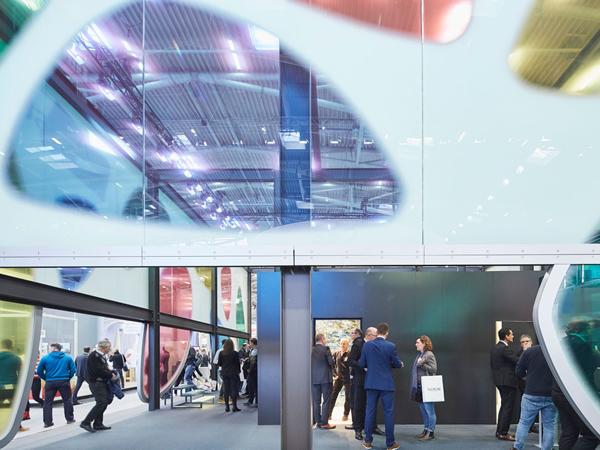
Date: 15 June 2020
The global spread of COVID-19 is troubling for us all. It affects our private lives—we worry about family, friends and relatives. Good health is a most precious gift. Our thoughts are with all those who are suffering at this very difficult time.
 The COVID-19 pandemic is also a huge concern in our working lives. What will it mean for the future of the building sector? What will it mean for job security?
The COVID-19 pandemic is also a huge concern in our working lives. What will it mean for the future of the building sector? What will it mean for job security?
So of course BAU will be looking at the implications: What next for building after Corona? The supporting program will present analyses and case studies as well as possible solutions. At BAU we see ourselves as your partner. In good times and in bad.
Against this background, we would like to express our warm thanks for the trust many of our exhibitors and partners are placing in us at this time. We appreciate your continued support in the interests of a successful BAU and a positive year of business in 2021. Together we can succeed.
Your BAU Exhibition Team
Corona – where is the construction industry headed?
The corona pandemic has overrun our totally defenseless society and economy in recent months. At the moment, we can only speculate about the long-term impact that this illness will have on individual industries. We are unlikely to have any meaningful forecasts about the impact for several months or, possibly, several years. But we are already feeling the short-term economic pain caused by the virus. Lockdowns and temporary unemployment have bruised both national and international economies. Just like leaders of other industries, executives in the construction business are now trying to determine where their sector will head after the corona crisis.
Business climate index prepared by the German economic institute ifo has fallen to its lowest level ever
A quick glance at the ifo business climate index is certainly not prompting the German economy and the country’s construction industry to crack open any bottles of champagne. In April, the value of the economic institute’s index plummeted from more than 85 points to 74 points, the lowest level ever recorded. Such a precipitous drop had never been seen before. The surveyed companies also had never been so pessimistic about the near future as they were in April. The corona crisis has hit the German economy like a gigantic sledgehammer.
The situation is virtually the same in main construction trades. The index for this industry has also plunged to an all-time low. In March, the value of the index was + 5 points. In April, it plummeted to -17.5 points.
Corona and the impact for the construction industry
What specific impact will corona have on the construction business? This was the question that the Central Association of the German Construction Industry posed to its members. Forty percent of responding construction companies said they had experienced contract cancellations, and 30 percent stated that their revenues had declined. Nearly half of the responding companies (43 percent) reported supply bottlenecks.
Felix Pakleppa, the head of the association, has called on political leaders to make a strong commitment to the industry: “Most construction companies have managed to keep their businesses above water, but they are having to go all out to do so. The construction industry has served as a secure underpinning for Germany’s domestic economy in the process. This is why we now need some targeted programs designed to reinvigorate the economy.”
Dieter Babiel, the head of the Main Association of the German Construction Industry, agreed: “Construction companies did indeed begin the year with a tremendous number of contracts. But we fear that they will evaporate as the year wears on. It is easy to see why, too: Every fourth construction company has reported about canceled contracts and 45 percent about declining demand or a dearth of calls for bids, particularly in the municipal segment.”
The construction industry is still profiting extensively from the boom it enjoyed in recent years. Its full order books are securing revenues and jobs even during the corona crisis. Unlike many other economic sectors, construction projects are not affected by lockdowns. For this reason, the Main Association of the German Construction Industry only expects to see nominal revenues stagnate in 2020 at their level in 2019. This is certainly a good piece of news in these times of corona.
Additional optimism is being expressed in Austria. Thomas Birtel, the head of Strabag, sees no problems in infrastructure and residential construction. “Unlike some other sectors, the impact of the crisis on the long-term contract situation in the construction industry is likely to be relatively manageable,” Birtel said. Stefan Graf, the CEO of Leyrer + Graf, also offered an upbeat assessment. “The construction industry is a thankful industry in this regard. People always build things. Lots of money is always invested in infrastructure following crises, and we in the construction industry will naturally benefit from these investments.”
Corona pandemic will impact architecture in the future
Like the construction industry, finishing trades and builders, architects are also being affected by the corona crisis. In a survey that the Association of German Architects recently conducted of its members, nearly half of respondents said they had not yet felt any financial effect of the crisis. But one-third of respondents stated that a long lockdown would create major challenges for them.
To provide architects with a future, association President Susanne Wartzeck has issued a clear demand: “We expect two things from the real-estate industry and, above all, the public sector. First, we want to see a systematic continuation of the contract-issuing and bidding process. Second, we want to see existing construction and investment planning continue to move forward and not backwards.”
In this connection, Wartzeck said any economic recovery programs must be designed with the future in mind and that these programs should be measured in accordance with the quality of architecture and urban planning as well as with the requirements of environmentally conscious construction practices.
The Shanghai-based architect Zhu Xiaofeng (Scenic Architecture) went a step farther. He said architecture was now facing a completely new challenge: “Our past interest was to develop new rooms for groups. But we have to change our thinking now. Architects have to answer one question: What type of room will have the flexibility needed for group gatherings and partitioning?”
Tan Gangyi, an architect in Wuhan, said the corona pandemic could have a positive effect on architecture and building practices: “Remote monitoring, VR technology, particularly after the introduction of 5G, and other technologies will have a huge impact not only on design, but also on architecture. The production and sharing of knowledge will change, and the combination of online and offline activities in architect training and architectural design will become more and more common.”
BAU, the world’s leading trade fair for architecture, materials and systems, will showcase the ideas and solutions that the construction industry will offer after the crisis from January 11–16, 2021, in Munich.
 600450
600450


















Add new comment